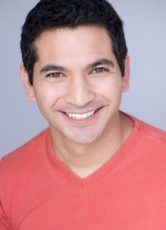
People are complicated. They can feel a wide range of emotions at once while still managing to get through their day. This is what actors seek to explore and express in their dynamic characters.
When done well, a compelling performance draws audiences in, suspending their disbelief to connect with and appreciate a character’s struggles.
A missed performance, however, can do the opposite. At best the crowd will laugh through it. At worst, they’ll walk out.
How should an actor make strong choices to understand a character’s emotions? Here are some acting tips on building a complex character.
Imagination is Key to Making a Character Complex
The legendary Stella Adler dedicated herself to mastering the craft of acting and passing the valuable knowledge on to her students. One critical element of acting, she insisted, was the actor’s imagination.
“Don’t use your conscious past. Use your creative imagination to create a past that belongs to your own character. I don’t want you to be stuck in your own life. It’s too little,” she said.
A thespian’s imagination is vast and expansive. Not only is it a tool to rely upon, but it’s a dominant aspect of an actor’s identity. Adler believed that the imagination “is closer to the actor than real life—more agreeable, more comfortable.”
When thinking about your character and what makes them complex, think of their character traits, character strengths and character flaws. Consider the character psychology. What makes them tick?
Be as Specific as Possible
Mel Churcher, a renowned acting and voice coach, warns actors to not miss out on opportunities to bring their characters to life. “Everybody says from the day you start drama school, ‘Be specific, be specific,’ and yet people don’t seem to be,” she says. “When I work even with really good working actors … people aren’t specific. I say, ‘Well, how long [has your character] been married? Where did you live before that? Well how did you get into this business you’re doing? What were you doing just before this? And where have you come from?’ And people don’t know.”
Churcher points out that people can answer all these questions when asked about their personal lives and encourages actors to fill out their characters with more dedication. While she admits it’s “not possible to know everything,” Churcher urges actors to have a better sense of their character’s attitudes, feelings, curiosities, likings and understandings.
Consider Writing Out Your Character’s Biography
Every person who’s ever lived has had a backstory. Sometimes characters — both fictional characters and real people — come with fully established backstories. Most of the time, actors will need to imagine a rich and plausible story for their characters by gathering the clues scattered within a script.
When diving into a script for these clues, actors will have to determine pivotal moments in their character’s life story, starting with birth through the teen years and into adulthood. As you examine the script, think about the character arcs and what moments from your character’s past would help make that arc believable. This will help you create character depth.
This character development exercise is not intended to overwhelm performers with inconsequential details, but to focus on a few of the most impactful moments of the character’s life. Those moments will serve as the foundation of his or her beliefs and needs.
Questions to ask when creating a backstory can include:
- What are important aspects of the character’s personality?
- What kind of stressors existed in his/her family life?
- What are the character’s beliefs about people?
- How does his/her behavior change when under stress?
- What does he/she conceal from others and why?
In regards to her approach to character development, Viola Davis says, “I read [a script] over and over and over again. Just to find out, in actors’ terms, ‘the given circumstances’—who you are, what people say about you … And then I write a bio of the character. I try to fill it up as much as possible. What are her memories? Does she have brothers and sisters? What secrets does she have? What’s her favorite color? I do all of that work first. The character is always ever-evolving, just like we evolve based on circumstances that happen to us.”
Think About the Moment Before
Actors can consider what their characters were doing just before the scene starts and what they plan to do when it does. Are there subtle ways to weave these touches of real life into the performance?
Matthew McConaughey puts it this way, “Catch. I love it when you catch somebody in a scene. I love entrances and exits. I love doing all the work—well, let’s backload about where the guy’s coming from, and why, how he got here, and where’s he going. I love to finish scenes. Anytime there’s the old dot, dot, dot … finish it! Write it out. Just finish writing it. I write a lot on scripts. I write more than I ever actually say, but I have it. It loosens me up on the entrance and the exit … I like my work best when I’m feeling like I’m being caught coming in and caught going out.”
Fine-Tune Your Complex Character’s Physicality
What does the character look like, and how do they dress and style themselves? What life experiences made them choose to present themselves in this manner? What are the unique qualities of the character’s voice—the speed with which they speak, the volume and what vocal quality (raspy, whiny, assertive), as well as which dialect?
People experience a physiological reaction with each word they utter. Certain dialogue will bring about stress within a character’s body, while other parts of the script allow for moments of relaxation. Physical expressions give clues about a character’s thoughts, emotions and desires, as well as levels of confidence, comfort, and forthrightness.
When preparing for a role, actors consider many details. These include how to hold their posture, ways to use their eyes effectively, how to move across the room with purpose and what hand gestures to use.
Physical expression offers limitless options. That said, the more subtle the body language, the more refined the acting performance.
Take all of these character development exercises into consideration when undergoing your character creation. As you create authentic characters with this knowledge, you’ll discover the secrets to building believable characters and believable performances.
Want to get your acting career started? Sign up or log in to Casting Frontier and start auditioning today!
You may also like:
- Casting Director Leah Daniels-Butler Talks Casting Apple TV+’s ‘Manhunt’ and Her Approach to Historical Dramas
- Jennifer Ricchiazzi Discusses the Importance of Script Analysis, Casting ‘Reagan’
- 5 Simple Tips for Nailing Your Shakespeare Auditions
Written by Casting Frontier




